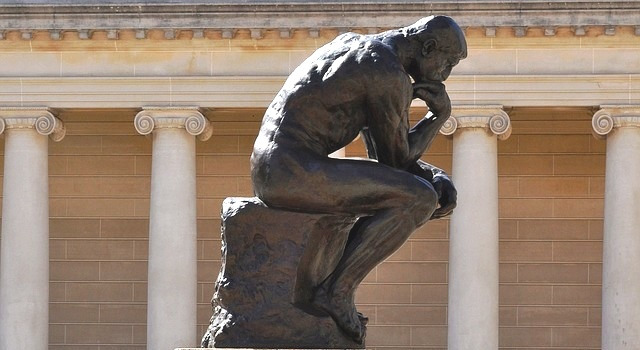Critical Thinking or To Reason
Critical thinking is the ability to objectively analyze, evaluate, and interpret information to form a well-reasoned judgment or decision. It entails questioning assumptions, considering different perspectives, and being open to new concepts.
Z. Hereford


Critical thinking is the mental process of analyzing or evaluating information. 'To reason' is the capacity for rational thought or to think logically.
The word 'critical,' according to Webster's Dictionary of Synonyms, among other connotations, "may also imply an effort to see a thing clearly and truly in order to judge it fairly."
Subsequently, once you have established a solid foundation or a healthy self-concept, it is important to be able to think critically or to reason.
Everyone thinks; however, much of our thinking is reactive, biased, uninformed, and often prejudiced.
More often than not, it is also haphazard and undisciplined.
Why do we need to think critically?
We must be able to evaluate and determine what is happening in a given situation in order to assess our role in and the consequences of any actions we take.
This requires us to organize our thinking, integrate the information at hand, distinguish between what is fact and what is opinion, and then weigh potential outcomes.
By thinking critically, instead of reacting emotionally to a problem, we employ strategies that:
Help us learn from an experience
Help prevent it from occurring again
Result in a reasonable, effective solution
Help us make better decisions in the future
The quality of life we experience is directly proportional to the quality of our thinking.
Critical thinking is self-disciplined, self-monitored, and problem-solving thinking. It promotes open-mindedness, putting things in perspective, and a positive attitude.
We subject ourselves to fleeting, erratic, unpredictable emotions when we don't reason or think critically.
Of course, this does not mean we should deny or suppress our emotions, for indeed, they are a vital and significant element of who we are. Instead, we must learn how to make them work for us, not against us.
Critical thinking helps us balance our emotions, leading to good judgment and informed decision-making.
For the most part, critical thinking does not come naturally. It takes effort, training, and practice.
As A. E. Mander wrote in his book Logic For the Millions:
"Thinking is skilled work. It is not true that we are naturally endowed with the ability to think clearly and logically - without learning how, or without practicing. People with untrained minds should no more expect to think clearly and logically than people who have never learned and never practiced can expect to find themselves good carpenters, golfers, bridge players, or pianists."
Tips On Improving Critical Thinking
Play strategy games, Sudoku and solve crossword puzzles to sharpen your brain.
Read more. Reading improves focus, imagination, and vocabulary, which results in heightened thinking skills.
Engage in healthy debates in class or with your friends. Argue both sides of an argument.
As Edward De Bono, the lateral thinking psychologist, suggests, use the GBI technique to list the good, bad, and interesting points of a position.
Look at a problem from as many viewpoints as possible while recognizing weaknesses in reasoning.
Learn to recognize a logical fallacy. Generally, a logical fallacy is an argument made on a false or inaccurate premise. For example, logical fallacies include over-generalization, jumping to conclusions quickly, or thinking something is true just because many people believe it is.
Look for inconsistencies and errors in reasoning.
Question assumptions, look at the big picture, and do not accept ideas at face value.
Related articles:
Learn to Think Critically and Problem Solve
